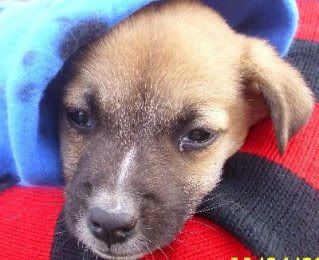Save the Khokana Goats.
The Khokana festival, Nepal, is held every year in August, the day after Gai Jatra. A 5-6 month old goat is thrown in a pond close to Rudrayani temple in Khokana, a village in the south of Kathmandu Valley.
Nine young men enter the pond and start to tear the goat apart by grasping its legs, ears, hoof or tail. The one who manages to kill the goat is the ‘hero’ and leads the Shinkali dance which is held afterwards.
 Save the Khokana Goats!
Save the Khokana Goats!
Please send the Sample Email:
Dear,
I would like to express my deep concern about extreme cases of animal cruelty being conducted in the name of religion in Nepal.
In Nepal, animal sacrifice is widely practiced. There are no rules of regulation; rather, the government supports blood sacrifices by providing subsidies.
Apart from regular sacrifices at Goddess temples, extreme cruelty is conducted at certain festivals including the live skinning and burning of animals, slow killings through throat slitting, killing with unsharp knives, public beheadings, et cetera.
In particular, I refer to the Khokana Festival, held in August, during which a terrified goat is thrown in the Deu-pond close to the Rudrayani temple, after which the animal is torn apart whilst still alive by a group of young men.
No one can adequately explain why this practice is carried out year after year – except to say that it is ‘traditional’. This, however, is not a valuable argument to continue this practice. Nepal, realizing the adverse effects, has abolished a number of ‘traditions’ in the past, including human sacrifice and widow burning.
I encourage the government of Nepal to abolish the above practice for the following reasons:
1. It hurts the goats – contrary to what many believe, animals suffer tremendously before and during sacrifice. They are generally hurt during transportation, starved and dehydrated, and they are often purposely killed slowly and painfully, as it is believed that the goddess prefers slow deaths.
2. It hurts us - cruelty against animals harms society as a whole; it signals and normalizes insensitivity in children who can become numb to the suffering of living beings, and it is also proven to influence certain people to commit violence on other humans.
3. It strengthens vested interests – sacrifices generally boost the interests of those who benefit from superstition-based beliefs and rituals. As Nepal is moving ahead to become a more fully democratic, egalitarian society, it is crucial to challenge age-old beliefs which are not beneficial and drain the resources of the poor and needy.
4. It contradicts the spirit of laws - Nepal is concerned about the welfare of its precious flora and fauna, and has signed a number of international Wildlife Treaties. The cruelty displayed in this so-called tradition completely contradicts the spirit and gestures of these treaties and acts.
5. It is bad for tourism - As tourists are abhorred by such practices, the festival will have an adverse effect on tourism, an industry which provides the country with much-needed financial returns. Those foreigners who experience or come to know the extent of sacrifice in this country leave Nepal traumatized, disgusted, and deeply saddened, rather than uplifted by its paradoxical beauty and friendliness.
I urge you to end the violent practice at Khokana and help Nepal move towards a truly peaceful country, and in keeping with its international image. This can be done by introducing and enforcing a much-needed Animal Welfare Act and promoting genuine animal welfare activities across the country.
I trust that the government of Nepal will support these measures, which are becoming more popular by the day, globally, and thus promote non-violent cultural practices in Nepal. Until such a time, however, it will be necessary to boycott Nepal both as a tourist and via commerce as well as encourage others to participate in a boycott as well.
Yours sincerely,
NAME
ADDRESS
Please Send to:
Also to:
Join the Facebook Efforts Fighting to Stop this!
THANK YOU





